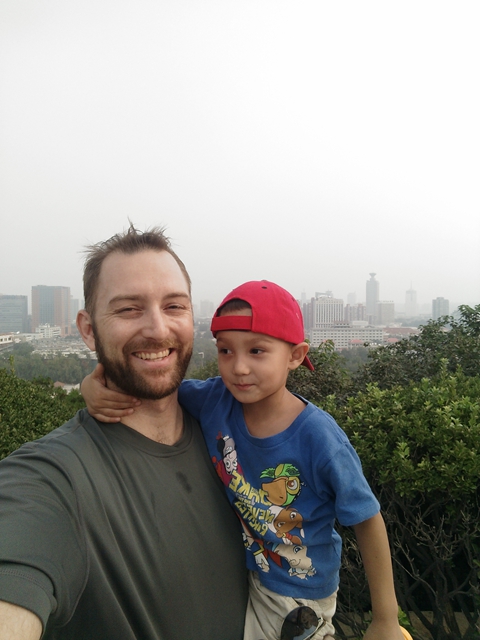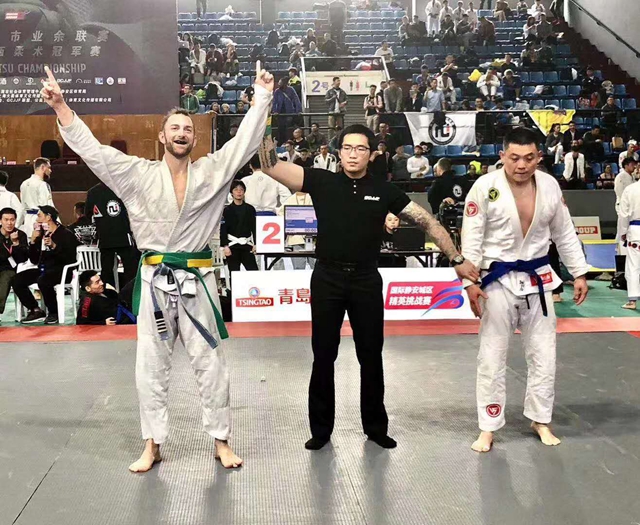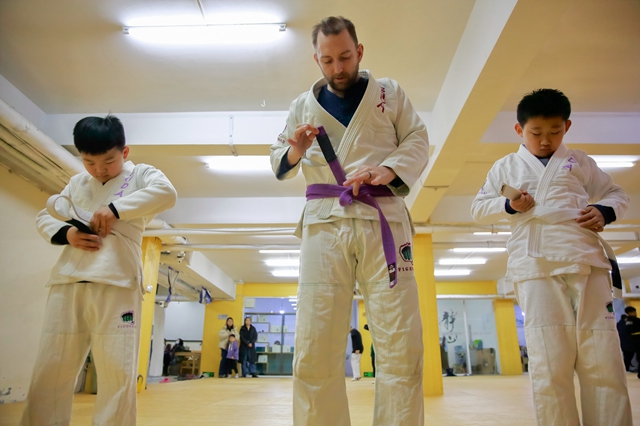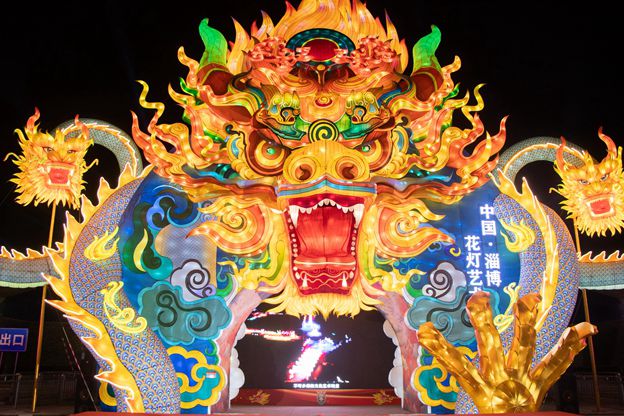Half a life half way around the world
By Benjamin Hammer| (chinadaily.com.cn)| Updated : 2021-01-19
Print PrintEditor's note: We have asked expats living in Shandong to share their own stories with the cities they work and live in the province. Benjamin Hammer is an American who has been living and working in Shandong province for 15 years.

Benjamin Hammer takes a selfie with his son atop Qianfo Mountain in Jinan, capital of Shandong province. [Photo provided to chinadaily.com.cn]
I lived the first two decades of my life in America and the next two in China. It is a strange feeling to know your own country only as a child and to become an adult in a foreign one.
I experienced very little culture shock upon arriving in 1998 because I knew very little about China. I had no expectations. Just live and learn. I arrived in China as a college student at Nanjing University. On my first day living at the student dormitory, I went downstairs to the convenience store to buy a bag of chips. I came back five minutes later to buy a Coke. As a joke, I said to the cashier, "Long time no see!" (好久不见) She immediately corrected me and said, "No, you were here five minutes ago." That was lesson number one in China: sarcasm does not translate.
Soon after, a local friend invited me to his house for my first ever lunch in a Chinese home. His father finished eating first, put down his bowl and chopsticks and said to me man man chi ("Eat slowly"). I was confused. I didn't realize this was part of Chinese etiquette. He wanted to express that just because he was done eating, I should not feel rushed to finish. I thought, "Am I eating too fast? Why does he care about the speed at which I eat?" After they explained it to me, I learned my second important lesson: to learn the language, one has to learn the culture. I had already studied the language for three years before I came to China. I knew words, but there was so much I didn't understand. Why were people putting food into my rice bowl? Why were people at the table telling me when I could and couldn't drink my cup of beer? Why was it okay for everyone to spit things out directly onto the table, but they covered up their mouths with their free hand when using a toothpick to be polite?

Benjamin Hammer (left) attends a Brazilian Jiu-Jitsu championship in Shanghai in 2018. [Photo provided to chinadaily.com.cn]
Things have changed since then. Chinese customs have become my own. They are so deeply ingrained in my daily routine that I do not think about them. My problem now is when I go back to America to visit family. And it's not just the little things. The way I see society, government, and personal relationships have all changed. My values and priorities have changed. To put it a better way, my adult values and priorities were formed while I was in China. The culture shock happens when I go back to America.
It has been an interesting experience to be a permanent Caucasian fixture in a conservative Chinese province like Shandong. Walking around the streets, I sometimes forget that I look so different. I forget that I stick out like a sore thumb. I consider this my home and nothing seems foreign to me. Then I catch people staring at me, or asking me if I can speak Chinese or use chopsticks. I am reminded that to them, I am always an outsider.

Benjamin Hammer serves as a Brazilian Jiu-Jitsu instructor during his free time in Jinan, Shandong province. [Photo by Zhang Renyu/provided to chinadaily.com.cn]
When I am with my Chinese friends, I experience the other side of Shandong culture: warmth, friendliness, social bonding. My friends do not see me as a fresh-off-the-boat foreigner. They do not bombard me with questions about how much things cost in America the way new acquaintances do. We sit around a large, round table in a restaurant, eating, drinking, and drinking. The person hosting has a designated position at the table; the secondary host has his position; the primary and secondary guests of honor have their places. Everyone has their location at the table based on their relationship to everyone else within that group's social hierarchy.
The ensuing game of toasting each other is a fascinating experiment in social interaction. Within the confines of the game, the diners can recite poetry, express their respect, gratitude, and love for others, display their personality, reveal their feelings and values, and even exert their dominance. When I first played this game I hated it. It felt too confining, too artificial. Now that I have learned the rules a little better (and have a good group of friends to play with), I love it. It is a social glue that needs to be reapplied every once in a while to reinforce the social bonds of family and friendship.
Living my adult life in a foreign country has become a lifelong learning process. As an outsider, there are always more subtleties and trivia to learn about this culture. But I have concluded from decades of observation that there is a mistake common to almost all who are trying to understand people of another culture. Whether it is Easterners wanting to understand the West or Westerners wanting to understand the East, people spend too much time asking how we are different instead of asking how we are the same.
If you like to share your story about China, please contact cdwx@chinadaily.com.cn.

 2024 Shandong Rural Cultural and Tourism Festival
2024 Shandong Rural Cultural and Tourism Festival  Celebrate Spring Festival in Zibo
Celebrate Spring Festival in Zibo  Share your views on 2024 China's govt work report
Share your views on 2024 China's govt work report